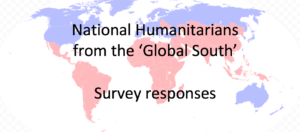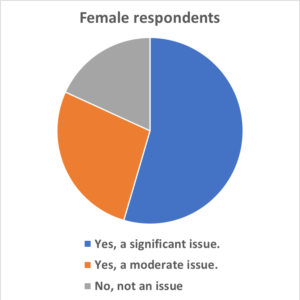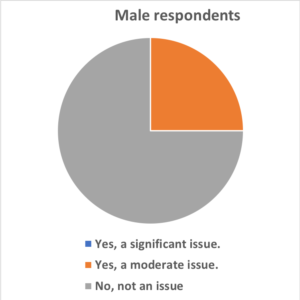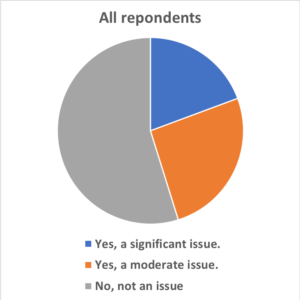Some early results from global humanitarian survey
Quick update
With just several dozen responses so far, to call this even preliminary data seems premature. All of the responses have been to the English versions of the survey, 10 from the ‘short’ and 26 from the ‘long.’ Scanning the data thus far, I am already struck by a few of the narrative responses.
Emotional toll
In her comment responding to the question “In general, do you like your job as a
humanitarian (aid or development) worker?” one female humanitarian working as permanent national staff stated,
“I think I would like it more if took care of the people working in the space. A lot of what we do [is] physically and spiritually taxing and I sometimes feel that there aren’t a lot of spaces where we get to revive and rejuvenate ourselves. We are unfortunately expected to move to the next project without dealling with the effects of the last. Furthermore working in a space where we have an unresponsive government further exacerbates the feelings of burnout.”
This comment squares with the many informal conversations I have had with national humanitarians over the past year.
Race and ethnicity
In her final comment, another female humanitarian working as permanent national staff stated,
“The aid world is a very racist world in which career development opportunities are easy for white people. We can easily witness the growth of a white colleague from officer position to sometimes manager and director level while a dedicated and diligent black professional works in the same position for years.”
Among the same lines, one male pointed out,
“Ethiopia is ethnically divided country. Job seekers can get job easily if they belong to ethnic group of employers.”
Race and ethnicity are a factor virtually everywhere in all industries. That it is a factor in the humanitarian aid sector surprises few, but hearing these voices again underlines this fact.
#AidToo
There are two questions on the survey that hit on the “#AidToo” topic that has rocked the humanitarian sector for well over a year now, beginning with the OXFAM-Haiti revelations. Our first question is fairly straightforward, asking “Do you believe that sexual harassment or exploitation of national aid workers in the workplace is an issue?”
The results thus far show a remarkable -though I think predictable- difference in perception between males and females. As you can see, the vast majority of the female respondents indicated that “sexual harassment or exploitation of national aid workers” was a significant or moderate issue. By stark contrast, none of the males saw harassment as a significant issue and only a quarter saw it as even a moderate issue. None responded that it was a significant issue.
Spread the invitation
Please spread the invitation to participate in this survey. Our purpose is to hear and report as many voices as possible and then to use this information to inform discussions among thought leaders. Having ample and detailed data can be an additional step toward improving working conditions for all humanitarians.
This research has been approved by the Institutional Review Board (IRB) at Elon University.
Below are the full urls for all versions:
Long versions (50 questions)
English (long version): https://www.surveymonkey.com/r/JB8JB5T
French (long version): https://www.surveymonkey.com/r/33WF2R2
Arabic (long version): https://www.surveymonkey.com/r/YD3SX6Y
Short versions (25 questions)
English (short version): https://www.surveymonkey.com/r/R3DQRFJ
French (short version): https://www.surveymonkey.com/r/R3BJGRN
Arabic (short version): https://www.surveymonkey.com/r/R3MZFG2
Bangla versions are in translation and will be linked as soon as they are available.
Below is the invitation to participate as it appears on the survey:
Our purpose
The purpose of this survey is to learn about the views and lives of national humanitarian workers. More specifically, we want to hear from humanitarians who are from the so-called ‘Global South’. Our goals are to share this knowledge with the humanitarian (aid and development) community.
This survey covers a wide range of topics. Though most questions require only a short answer, you are encouraged to offer additional insights in the spaces provided throughout. Your written responses are all OPTIONAL, but please take the time to offer your views if at all possible.
Please be confident that this survey is completely anonymous (including the IP address) and that nothing you say can or will be attributed to you individually or to your organization. Express your views freely.
This research has been approved by the Institutional Review Board (IRB) at Elon University.
The summary results of this survey will be made available to all respondents in a timely and appropriate fashion soon after the survey is closed. You can look for updates and the results at https://blogs.elon.edu/aidworkervoices.
Thank you in advance for your gift of time and effort completing this survey. Please feel free to make other colleagues aware of this survey by passing on the url via email or social media.
Please contact me if you have any questions, comments, or would like to be interviewed for this research.





 Follow
Follow